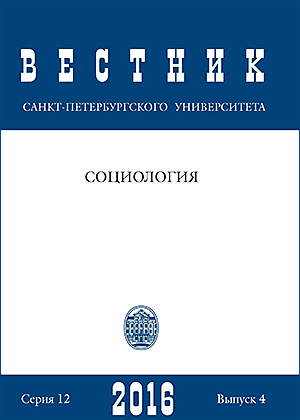Global space of culinary and its’ empirical research
DOI:
https://doi.org/10.21638/11701/spbu12.2016.408Abstract
The author analyzes the global culinary space that has been created by globalization. There are many national cuisines in every global city that exist as chains of restaurants. There are culinary superpowers, great culinary powers, middle culinary powers, small culinary powers and super-small culinary powers. The culinary potential of every country should be considered as a component of its soft power. The status of any country within the culinary space can be characterized by degree of its culinary sovereignty. This dimension depends on the quantity of restaurants of national cuisine in the country. There are countries with full culinary sovereignty, countries with limited culinary sovereignty, culinary semi-colonies and culinary colonies. Refs 11. Tables 3.
Keywords:
sociology of food, culinary, global culinary space, culinary power, culinary sovereignty, culinary colony, culinary nationalism, culinary cosmopolitism
Downloads
References
References
Downloads
Published
How to Cite
Issue
Section
License
Articles of "Vestnik of Saint Petersburg University. Sociology" are open access distributed under the terms of the License Agreement with Saint Petersburg State University, which permits to the authors unrestricted distribution and self-archiving free of charge.




